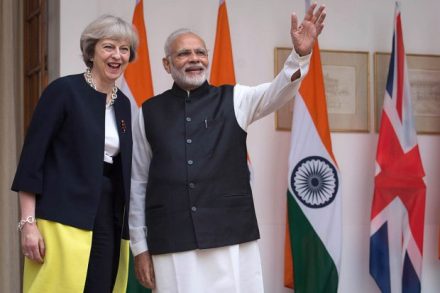Could Le Pen win in France? After Trump, it’s foolish to rule it out
France’s centre-right newspaper, Le Figaro, is running a poll on its website asking readers if they’re happy to see Donald Trump in the White House. At the last count 56 per cent of the 131,954 respondents said they were. One person who most definitely is delighted is Marine Le Pen, leader of France’s National Front, who said the election result was ‘good news for our country’. That’s because, as she went on to explain, Trump would end ‘wild globalisation’, improve relations with Russia and, most importantly, rein in ‘the warlike interventions that are the source of the huge migratory waves that we are suffering’. But what will it do to her



















